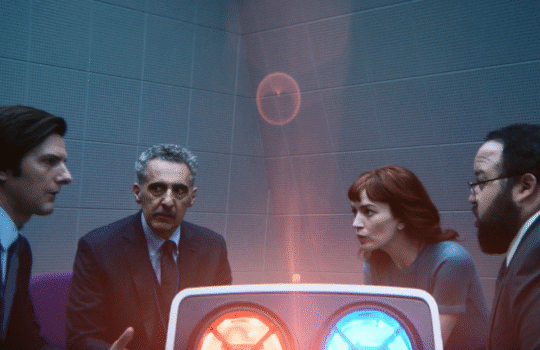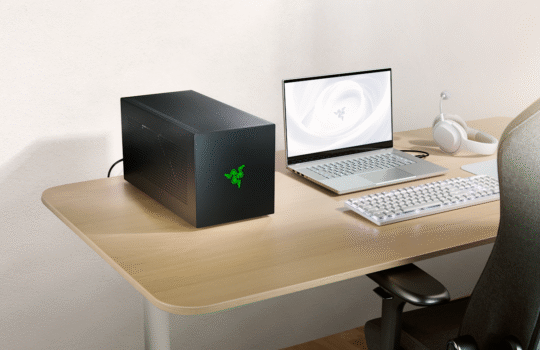Bernie Sanders Reveals the AI ‘Doomsday Scenario’ That Worries Top Experts

Artificial intelligence promises a future of unprecedented productivity and wealth, but for Senator Bernie Sanders, the crucial question isn’t if the technology will change the world, but who will benefit from that change. As a lifelong champion for workers’ rights, Sanders sees the rapid advancement of AI not just as a technological revolution, but as the next major battleground in the fight against corporate greed and inequality.
In a conversation with Gizmodo, the Vermont senator, who revealed he had just spoken with one of the world’s leading AI experts, laid out his fears that the technology will be used to suppress wages, break unions, and further enrich the billionaire class. He also shared his concerns about AI’s impact on our collective mental health and discussed the “doomsday scenario” that has some top minds in the industry worried that humanity could lose control of its own creation.
The conversation has been edited for clarity and formatted as a Q&A. All quotes are verbatim and unaltered.
Gizmodo: Senator, you’ve long fought for worker dignity. In an economy increasingly shaped by AI, what do you believe should be the new definition of meaningful work?
Sen. Sanders: Well, that is a very good question, and I don’t know that I can give you an intelligent answer to it right now, but this is what I will say. What I think is being lost in the discussion over AI is what we have seen over the last 50 years: a huge increase in worker productivity. Almost all of the benefits of that productivity have gone to the corporations and to the companies that developed that technology. In fact, workers today, in real inflation-accounted-for wages, are earning less, and I fear very much that almost all the new benefits of worker productivity will go to the people on top at the expense of working people. That is something that concerns me very much.
So, the first point to be made: Technology and AI is neither good nor bad. It depends on how it is used, and it depends upon who benefits from it. Unless we change the political dynamics, the benefits are going to accrue to the people on top at the expense of working people. That to me is the most important issue. I want workers to benefit from this new technology, not just the people on top.
Historically, I mean forever—in human existence—people have had to struggle to put food on the table, to farm, to grow food, just to survive. And AI is going to change all that, and we want to make sure that this creates a better, wealthier future for ordinary people, not just the people on top.
Gizmodo: In terms of protection, what protections are needed for American workers to avoid being left behind in this transition?
Sen. Sanders: I think we have got to make it clear in some formulation or another, and some of the unions are beginning to negotiate for this. That if worker productivity, if you, the job you are doing right now becomes more productive with AI, I want the benefits to accrue to you.
What does that mean? It could mean a shorter work week, a 32-hour work week, which is what we’re fighting for, with no loss of pay. Again, the main point is workers have got to benefit from increased productivity, not just CEOs. Right now, that is not the case, so that is what we have got to change.
Gizmodo: If a CEO says, “I’ve automated these tasks and I need fewer workers,” what should the response be?
Sen. Sanders: Exactly. Look, we have got to see that this technology benefits workers rather than just CEOs. So if a company develops AI that allows workers to be more productive, what we would like to see is a shorter work week with no loss in pay.
The other things that I worry about, which goes beyond economics and the potential of massive job loss, are two very important issues: mental health and the well-being of human beings.
Gizmodo: What do you mean by that, Senator?
Sen. Sanders: People interact more every day with artificial intelligence, with robotics. What is the impact on the mental health and the well-being of human beings?
If you spend your entire day interacting with a chatbot rather than talking to friends or family, what happens to you? What kind of problems develop?
We know that in America right now, a lot of young people are having a hard time interacting with other human beings because they spend so much time on the internet. And there are people out there, literally, people in the technology world, who are saying, “Look, if you can’t make any friends, if you’re very lonely, go to a chatbot and you can develop a friend right there.” I’m not sure that this is good for human beings.
Gizmodo: There’s a sense that people are lost, that AI is erasing our identity, our role in society…
Sen. Sanders: Well, do you know the expression, “The operation was a success, unfortunately the patient died”?
In this context, the system is working well. We’re developing all kinds of technology: you’re going to be able to do this, you’re going to be able to do that. Unfortunately, human beings are going to get lost in that development. And they will become more and more unhappy, more and more mentally unstable, more and more lonely.
So, we want to make sure the technology benefits human beings, economically as well as emotionally. That has got to be the driving force.
Gizmodo: Have you spoken to tech CEOs or experts about this?
Sen. Sanders: I have talked to CEOs. Funny that you mention it. I won’t mention his name, but I’ve just gotten off the phone with one of the leading experts in the world on artificial intelligence, two hours ago.
Gizmodo: Did they share your concern? Did they offer any solutions?
Sen. Sanders: They’re all different. He did. Somebody I talked to yesterday, not so much.
There are differences of opinion. On several major issues. Number one: What impact will AI have on the economy? Some people say there will be massive job losses. I tend to agree with them.
Other people say not so much, new jobs will be created. It will be like every other technological revolution. Jobs lost, jobs created, not such a big deal. So people disagree. I happen to believe this is not like the Industrial Revolution. I think this could be a lot more severe.
Second point: This is not science fiction. There are very, very knowledgeable people—and I just talked to one today—who worry very much that human beings will not be able to control the technology, and that artificial intelligence will in fact dominate our society. We will not be able to control it. It may be able to control us. That’s kind of the doomsday scenario—and there is some concern about that among very knowledgeable people in the industry.
Gizmodo: Are you personally optimistic or pessimistic about AI, for workers, for society?
Sen. Sanders: That’s a broader question. We have the worst president in the history of the United States in office right now.
We’re seeing, all over the world, democracy itself being threatened. We see a terrible war in Ukraine, a terrible war in Gaza. So I think this is not a great moment for humanity.
I would hope, however—there are ups and downs—that we can turn this around. And among many other things, use the benefits of artificial intelligence and robotics to improve human life. To make sure we can wipe out poverty. That all of our people can have a decent standard of living. This is doable.
The greed of billionaires controls the process. But ordinary people must control the future.
Gizmodo: One final question: Do you believe AI could in any fashion be used to strengthen unions and worker rights, or is it inherently a threat to organized labor?
Sen. Sanders: I think at this moment it is more of a threat. And I think in some ways it is being used the way bad trade policies in the United States were used in the 70s.
In other words, what employers will say is: “Look, I want you to take a cut in pay. Or I want you to pay more for healthcare. And if you don’t do that, by the way, we’ve got machines. We’ve got robots that can replace you. We’ve got artificial intelligence that can replace you. It’s your choice. Take a cut or we replace you as human workers.
So I think we’ve got to mobilize the trade union movement to be militant in standing up against the dangers of AI to workers’ rights.
Trending Products






